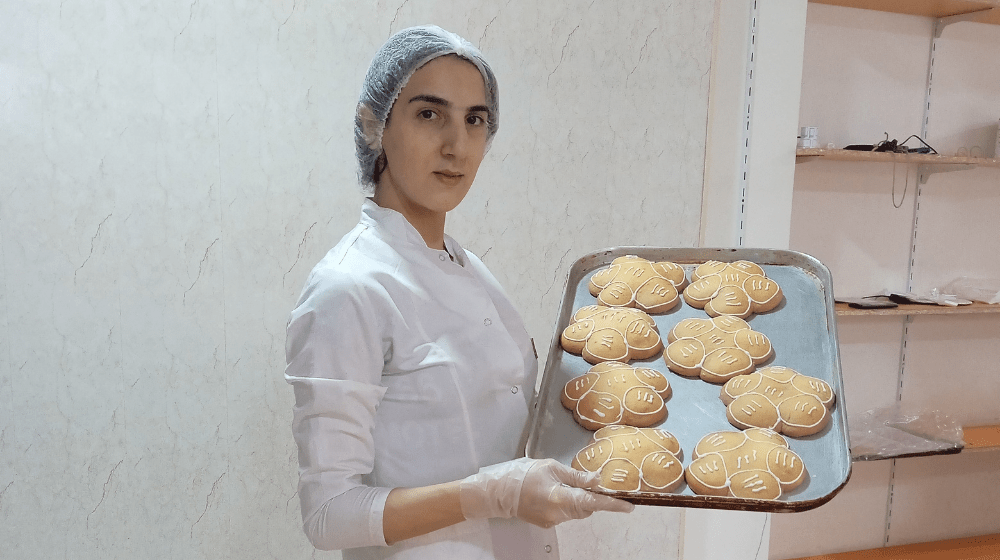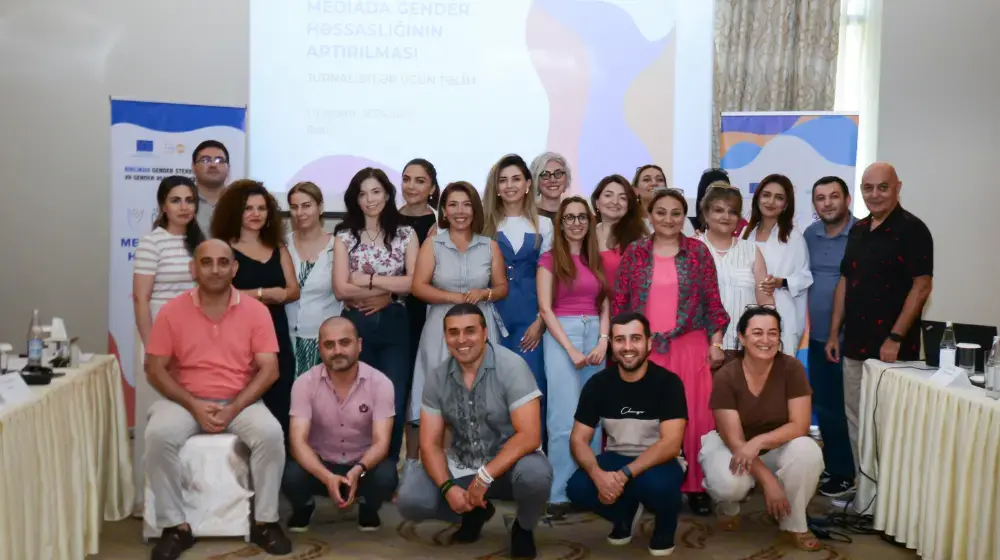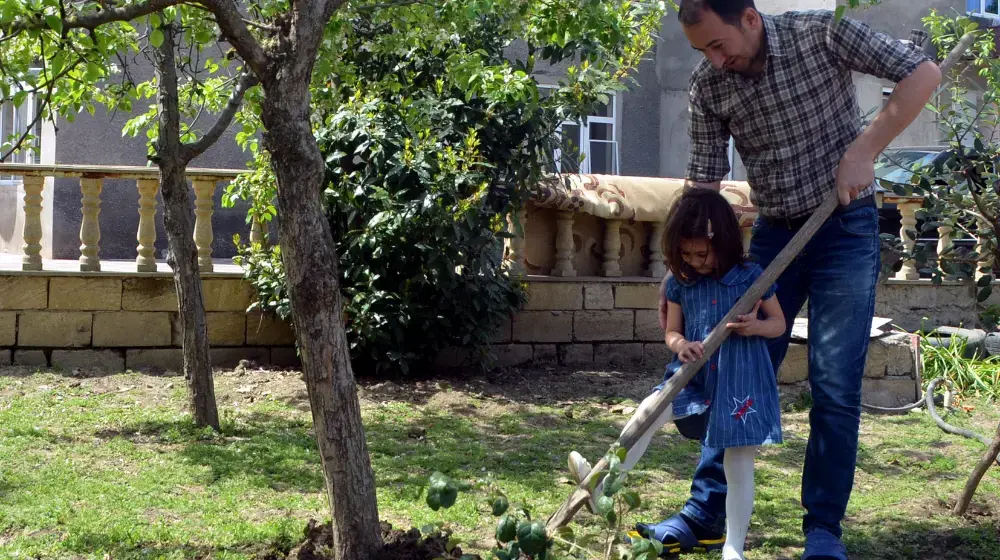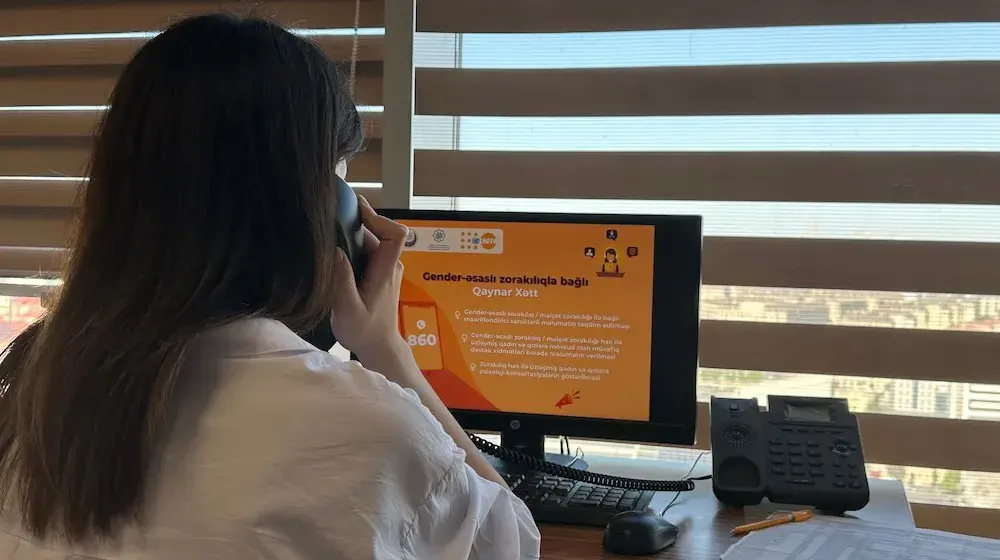QUBA, Azerbaijan – “A few years ago, I was only taking orders from home and delivering them to customers,” said pastry chef Sahila Asadova. “But I always dreamed of having my own business.”
While Sahila had the talent and ambition to open her own bakery, she lacked the necessary equipment and experience. To pursue this dream, she joined a project aimed at increasing employment opportunities for rural women in Azerbaijan. It was implemented by the NGO Azerbaijan Women Entrepreneurs Development Association (AWEDA) under the “EU 4 Gender Equality: Together against gender stereotypes and gender-based violence” programme.
More than 100 women participated in training activities for over a year, learning the skills to become successful entrepreneurs, like writing business plans and building their brands. Male members of their households also went through a gender-sensitivity course to understand how to better support the women’s careers. At the end of the programme, a committee reviewed all of the business plans and interviewed the top candidates. Sahila was chosen as one of the 25 most promising participants and awarded a small grant to kickstart her business. She used the money to buy needed baking equipment and opened the “SIRLI SOBA” bakery in the northeastern region of Quba.
“The constant support from my family and obtaining equipment through the project helped me overcome the challenges,” she explained. “Currently, I even have two employees who help me fill orders.”
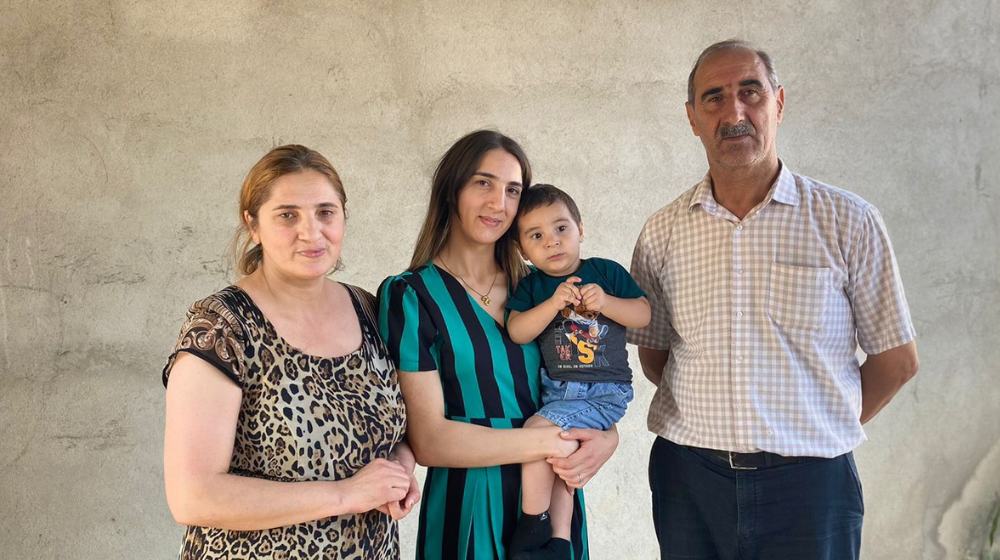
Sahila has big plans to grow her bakery business even more. Her goal is to open new branches and make “SIRLI SOBA” a recognized brand across Azerbaijan. She has already begun to receive large orders from bigger stores in the capital, Baku, and the Guba region. She is working on saving up to buy additional equipment, get a vehicle for deliveries and increase the number of people in her workforce to handle these orders.
Sahila hopes more women can follow her footsteps into the small business world. “I truly believe that every woman can establish her own business,” she said. “I believed in myself, set a goal and achieved it. You may face obstacles and challenges along the way, but do not lose heart and keep going. Just as I became the owner of my own business by joining this project, you can too.”
The small grant project “Strengthening women’s capacity and economic empowerment on the road to sustainable development through gender-responsive and multi-stakeholder cooperation” was implemented by the AWEDA NGO in the framework of the “EU 4 Gender Equality: Together against gender stereotypes and gender-based violence” programme (phase 2), funded by the European Union, implemented jointly by UN Women and UNFPA.
This publication was produced with the financial support of the European Union. Its contents are the sole responsibility of UN Women and UNFPA and do not necessarily reflect the views of the European Union.

